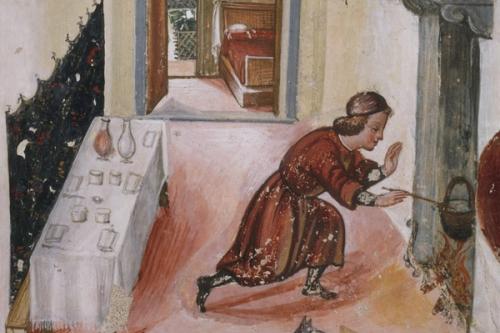Paula Hohti Erichsen wins the 2021 Roland H. Bainton Book Prize for Art and Music History by the SCSC!

About the prize
The Roland H. Bainton Book Prizes are named in honor of one of the most irenic church historians of the twentieth century. Roland H. Bainton was professor of church history at the seminary of Yale University for many years. The Art and Music History category, which is awarded at the annual meeting of the SCSC, is selected using the following criteria:
- quality and originality of research
- methodological skill and/or innovation
- development of fresh and stimulating interpretations or insights
- literary quality
The winner of this year's Art and Music History category is Paula Hohti Erichsen with her book Artisans, Objects, and Everyday Life in Renaissance Italy: The Material Culture of the Middling Class.
Paula Hohti Erichsen will receive a cash prize and a certificate. From all of us at Amsterdam University Press, we congratulate her on this fantastic achievement.
About the book
Did ordinary Italians have a ‘Renaissance’? This book presents the first in-depth exploration of how artisans and small local traders experienced the material and cultural Renaissance. Drawing on a rich blend of sixteenth-century visual and archival evidence, it examines how individuals and families at artisanal levels (such as shoemakers, barbers, bakers and innkeepers) lived and worked, managed their household economies and consumption, socialised in their homes, and engaged with the arts and the markets for luxury goods. It demonstrates that although the economic and social status of local craftsmen and traders was relatively low, their material possessions show how these men and women who rarely make it into the history books were fully engaged with contemporary culture, cultural customs and the urban way of life.
Read the book
The table of contents & introduction PDF can be downloaded from our website for free.
The book is included in our Early Modern Studies promotion. Receive a 40% discount with the code AUPEMS until 31 December 2021.
